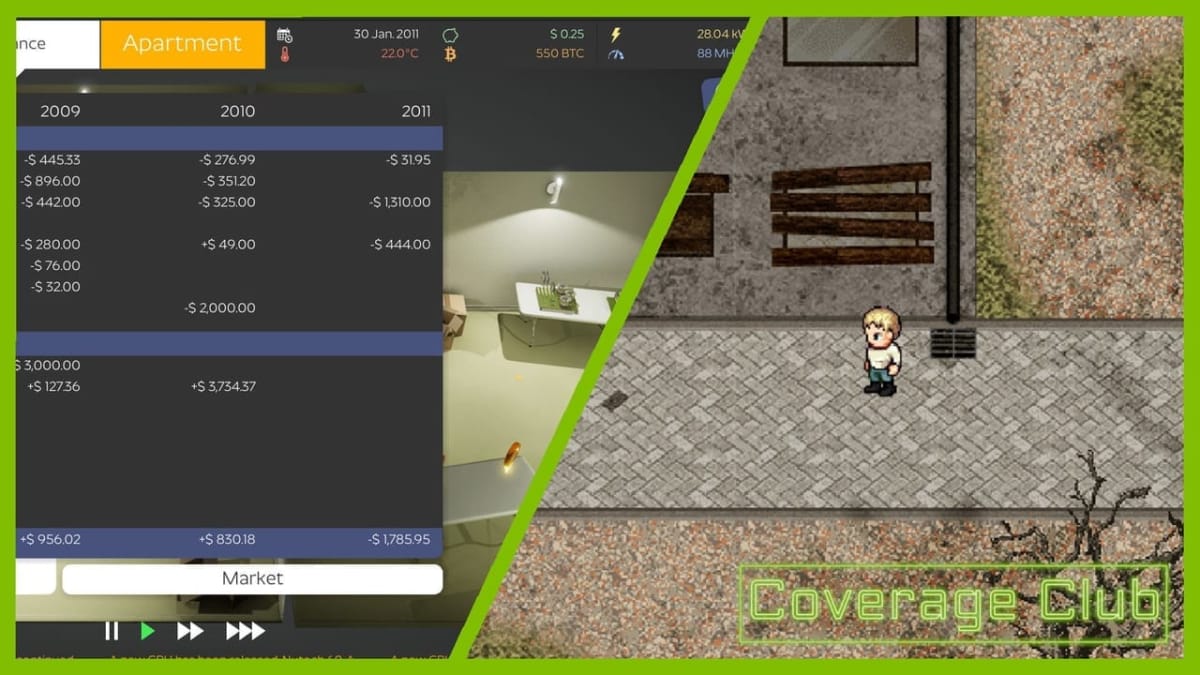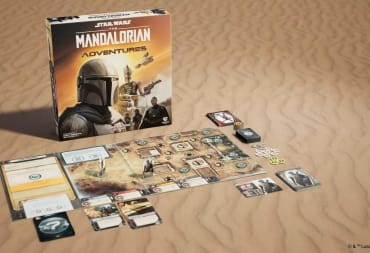Crypto Crisis
Covered by Max Moeller
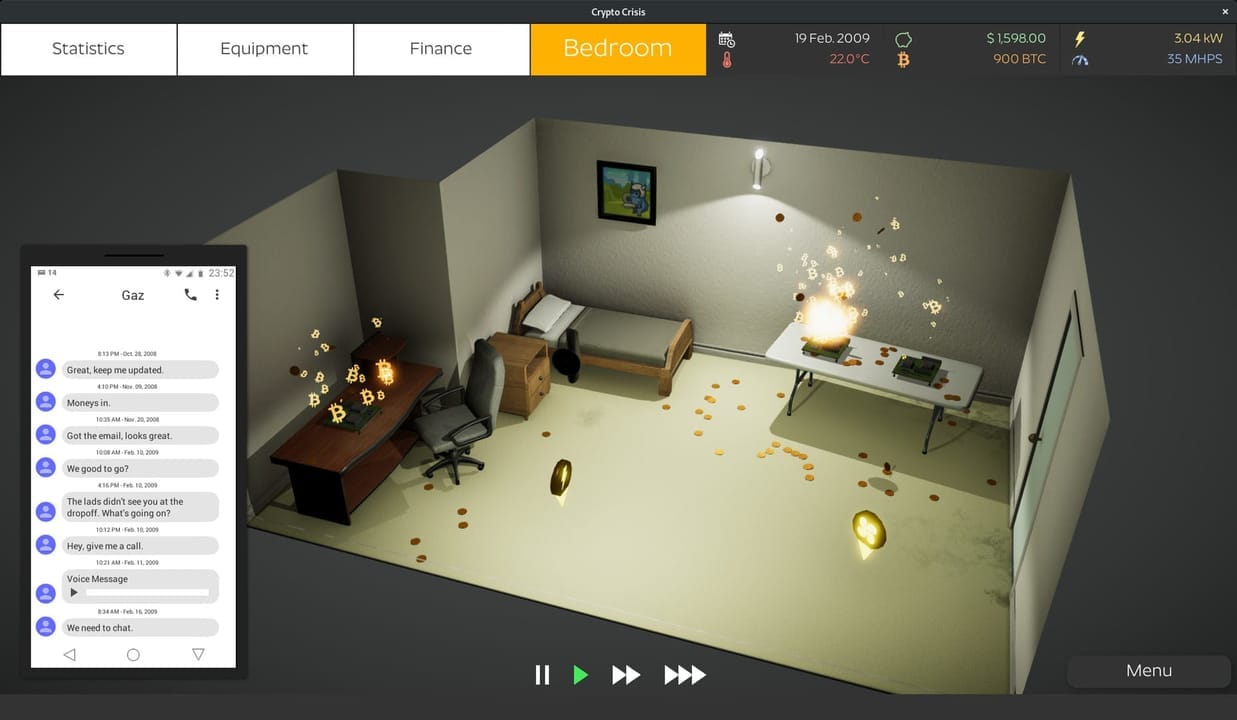
Despite what it may seem thanks to its subject matter, Crypto Crisis is hardly different from your traditional simulator. As far as gameplay goes, this is a weak offering. However, its light story elements and sense of humor make the experience bearable.
Your journey starts in 2009 - shortly after Satoshi Nakamoto introduced their digital currency, Bitcoin, to the world. As a wannabe success story, you've ditched your old life and locked yourself in an apartment to become rich as a Bitcoin miner. That said, you need to have money to make money. With $2,000 saved in the bank, it's time to get started.
Similar to gaming, mining Bitcoin requires a powerful GPU, CPU, and a way to keep the system cool. To beat out other Bitcoin miners, you need more than one system as well. To make it big, you need to have more mining machines than competitors, enough power to keep them running, and some cooling peripherals to prevent them from overheating. This may be a grand operation in real life, but doing so in-game is obviously easier. But it's all too easy.
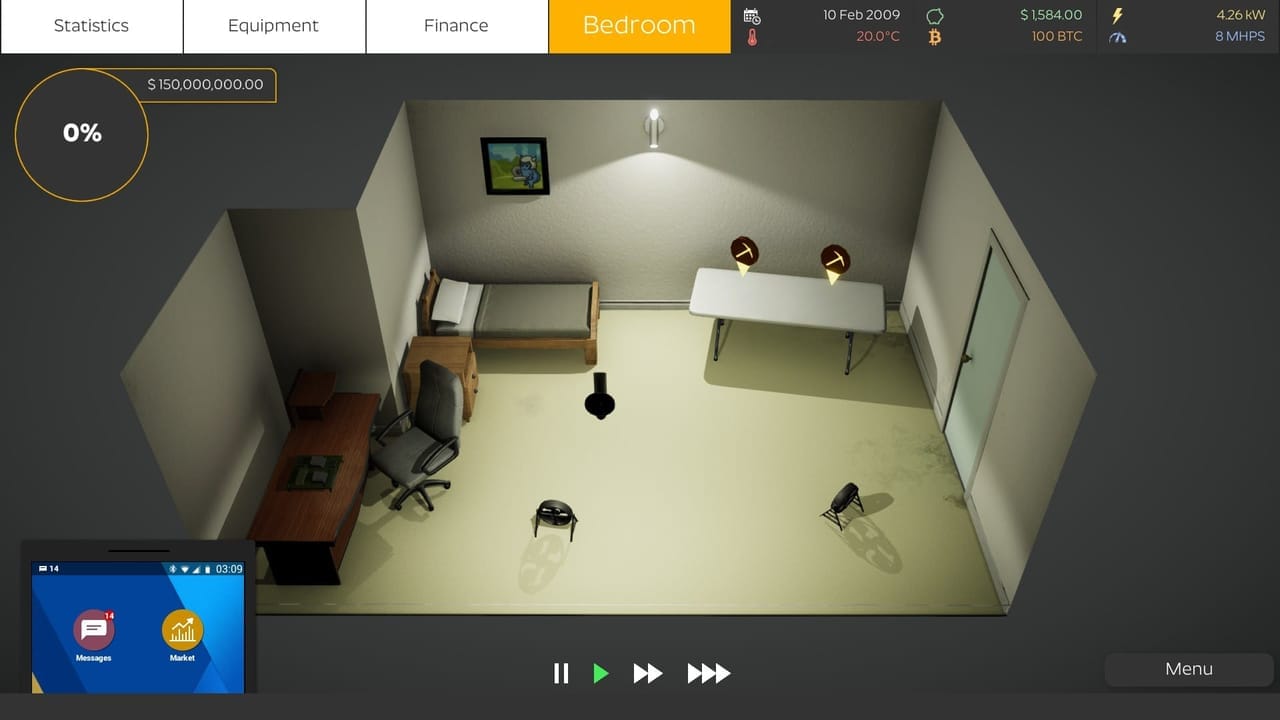
All you need to do is buy a chassis, a CPU, and a GPU from a concise list of items. Your initial savings should be enough for a great machine. It'll start mining, you'll hoard some Bitcoin, and then you'll sell it for a decent amount. By the time the room heats up, you'll have more than enough money to cool it. The only "gameplay" here is watching the Bitcoin price chart, waiting for it to peak, and selling your load.
Buying options are limited by your living space, which is easily upgradable after saving for a little bit. The starter apartment only allows for a couple of purchases, meaning you're sitting on a ton of money with nothing to spend it on. Yeah, there are monthly bills, but they're minuscule in the grand scheme of things. I'm talking like $60 a month in the early game when I have around $10k in the bank. Knowing the history of Bitcoin price points does make it easier for me, but someone without this knowledge would have no problems just staring at the finance chart and clicking sell at a high point. Better parts release as you progress, but you can buy them instantly and keep money coming in nonstop. There's no strategy here. The only thing stopping me from leaving the game running all night to hoard is having to click to "sell" button.
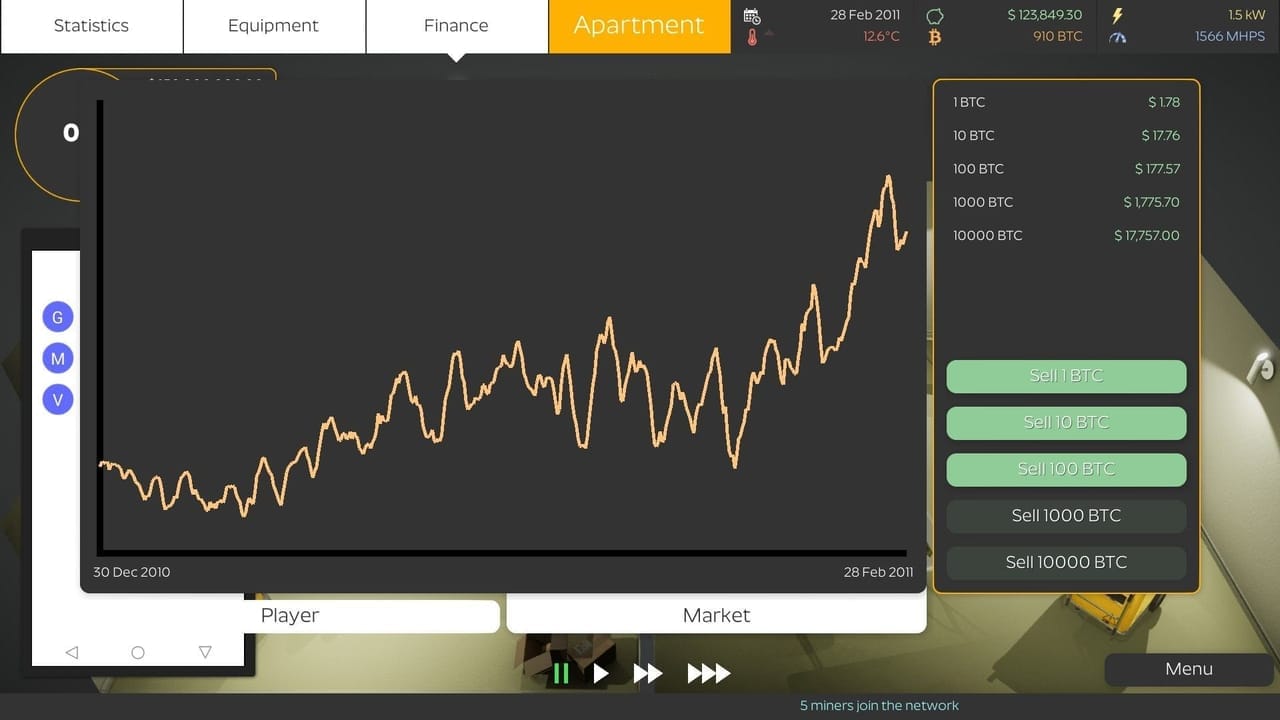
Crypto Crisis' saving grace is in its text messages. The corner of your screen houses a cell phone with limited features. Throughout the game, you'll receive texts from your ex-girlfriend, your former best friend, and some guy you owe a ton of money. The ex-girlfriend part is pretty cringe-worthy. She'll wonder why you left her, get mad at you for not responding, tell you she hates you, then suddenly say she's horny, then hate you again for not ignoring her. But you can't respond to these messages. So you're sitting there powerless as your ex has a mental breakdown. It's unnecessary. The friend and the bailed job, however, evolve into something more interesting.
I'm not going to spoil how, but the two threads end up tying together, creating a plotline that kept me wanting to play the game. Weirdly enough, this tale was much more engaging than trying to make millions from a crazy new digital currency.
Crypto Crisis is a bland title that's banking on the modern gold rush that is Bitcoin. It sounds like a cool idea, being there at the start of the first digital currency, but there's almost nothing to this rendition of it. Maybe this is one of those situations that shouldn't be gamified.
TechRaptor covered Crypto Crisis on PC via Steam with a code provided by the developer.
Reality Falls
Covered by Courtney Ehrenhofler
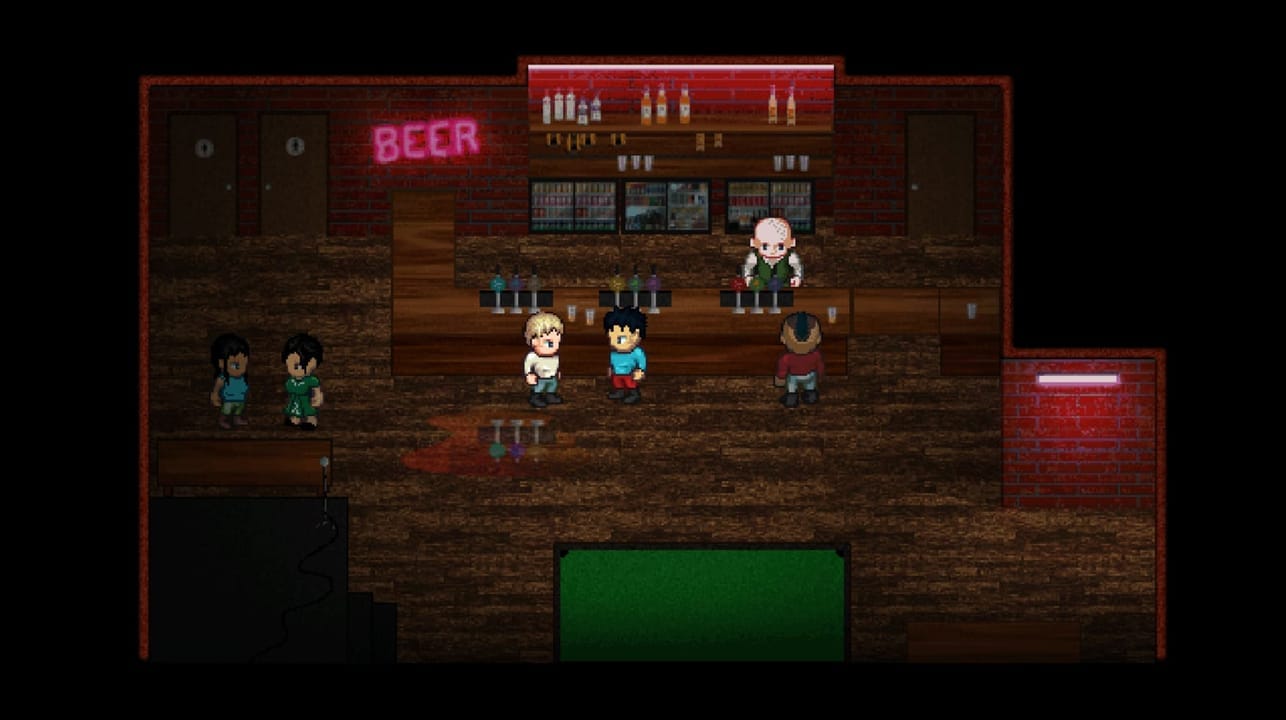
Reality Falls is the latest offering from developer Lewis Denby, a point and click adventure game whose demo has been released. Taking just under an hour to play, it gives players a bite-size snapshot of the game and throws a couple of puzzles their way, all while explaining the premise.
A bored young American named Adrian Watts has ended up in a dilapidated old Soviet town where there are suspiciously few buses and trains going in or out of town (and apparently no one owns cars). This is after he has decided to break from his mundane life and explore the world, but not explore how reading train schedules worked. The town is small and weird, and it seems like there might be something more occurring here than what is initially shown, particularly after Adrian discovers that a young woman simply vanished after walking out of town a few years ago, though no foul play is suspected.
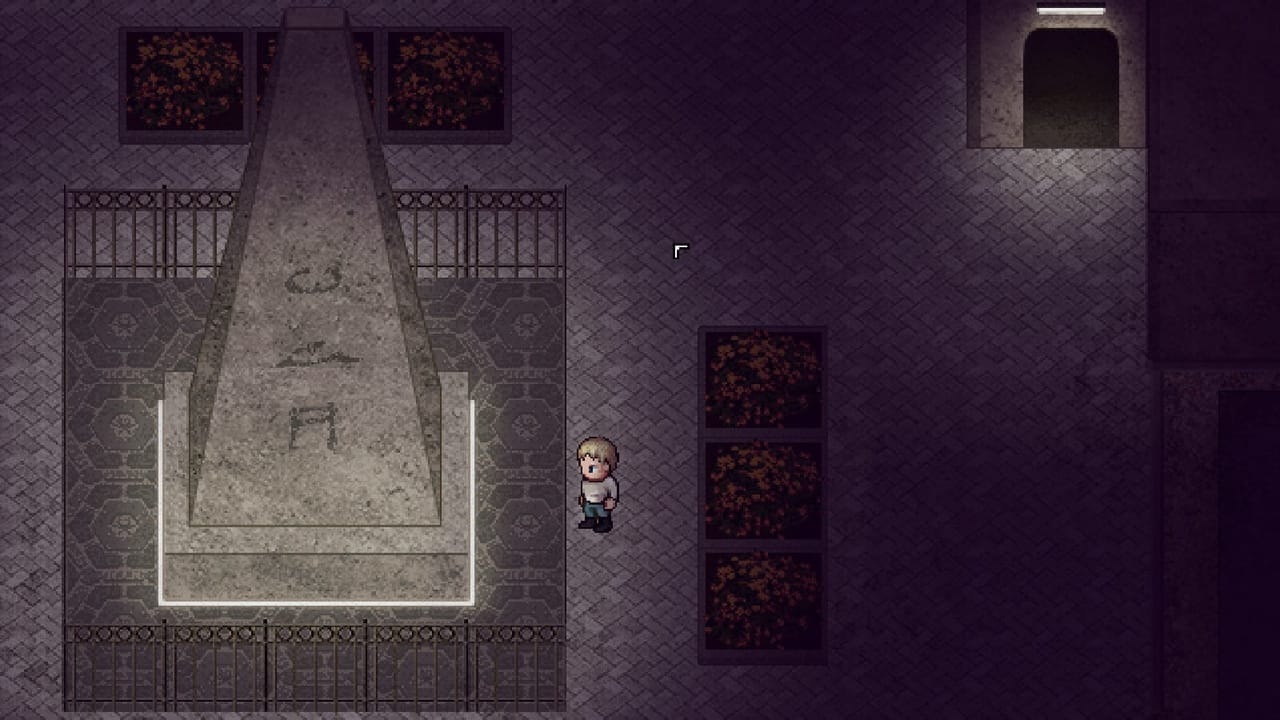
I honestly wasn’t sure what to make of Reality Falls’ story. There wasn’t enough information in the demo to tell what kind of story it would be exactly, but Adrian is so far a fairly snappy protagonist and he was what kept my interest. The game also offers a paper-thin excuse for why a town on the border of Europe and Asia is called “Reality Falls,” but it felt very contrived. At this point, I haven’t seen anything that suggests the game needs to have a Eurasian setting. It could be changed to just being out in rural Iowa and I don’t think there’d be much difference.
From the first hour’s gameplay, Reality Falls hasn’t made any strong impressions, good or negative. Most of it, with the exception of the weird setting, is fairly mediocre. The puzzles are bog-standard, so is the pixel art, and it’s obvious that this was a game that some effort was put into. With some polishing up for the final release, as well as seeing how the story plays out, Reality Falls could end up being a fun little diversion, or just another “average” point and click adventure game.
TechRaptor covered Reality Falls via a closed demo on PC via Steam with a code provided by the developer.
Have a tip, or want to point out something we missed? Leave a Comment or e-mail us at tips@techraptor.net
